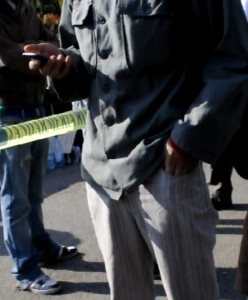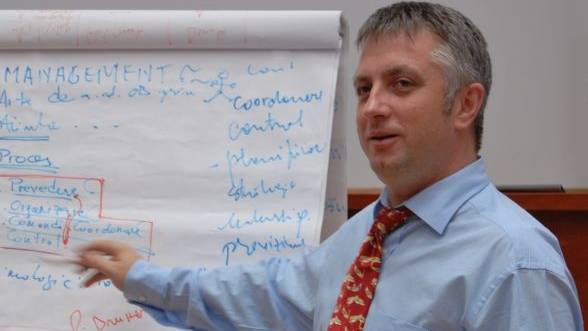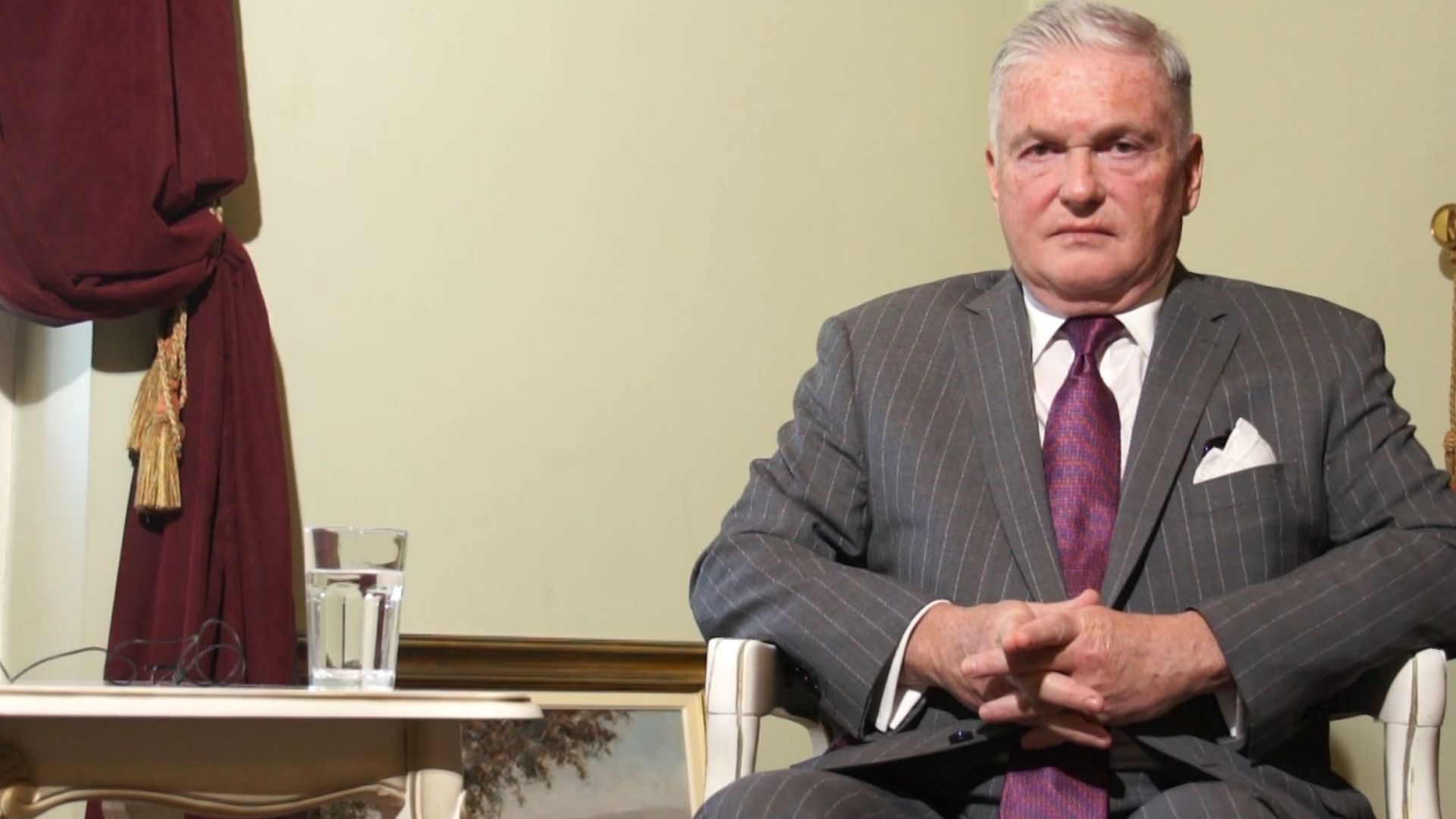
(…)
Marx trage deoparte un tînăr. Observă că e complet jerpelit, îmbrăcat în zdrențe, nespălat și nebărbierit. Era fără îndoială lihnit de foame, după ce fusese dat afară din fabrica unde fusese pînă acum suprasolicitat și prost plătit. Cu privirea lui atentă, Marx a observat că poartă un fel de încălțări din textil, nu e în stare nici măcar să își permită pantofi de piele! Pe toate hainele lui sînt mici logo-uri. Ce trist, gîndește Marx, trebuie să se îmbrace în reclame gratuite ale corporațiilor gigantice sau să umble gol!„Scuză-mă”, spune Marx, „ai fost concediat din cauza supraproducției de la fabrica în care lucrai 12 ore pe zi ?”
„Nu. Am un împrumut de 150.000 de dolari pentru studiile mele despre rezolvarea conflictelor și nu vreau să plătesc înapoi.”
Marx nu știa ce să creadă: „Dar atunci ai început să lucrezi într-o fabrică pe un salariu de sclav ca să te întreții?”
„Nu”, a răspuns simplu. „Aștept o slujbă în care să rezolv conflicte internaționale. Pînă atunci trăiesc în conacul părinților mei”. Se auzea o muzică ciudată. ” Frate, scuză-mă, nu pot să vorbesc chiar acum. Smart phone-ul meu sună.” Tînărul a apăsat un buton pe ciudatul aparatul și vorbește în el: „Hey! Ai primit mailul pe care ți l-am trimis de pe calculator? Ce? A, scuze, probabil l-am trimis de pe iPad II. Vorbește mai tare, nu te aud că e MP3 player-ul pornit!”
(…)
Karl Marx Visits Occupy Wall Street (Barry Rubin, pjmedia.com)




 „Nu. Am un împrumut de 150.000 de dolari pentru studiile mele despre rezolvarea conflictelor și nu vreau să plătesc înapoi.”
„Nu. Am un împrumut de 150.000 de dolari pentru studiile mele despre rezolvarea conflictelor și nu vreau să plătesc înapoi.”










![marius-bostan-foto[1] marius-bostan-foto[1]](https://inliniedreapta.net/wp-content/uploads/elementor/thumbs/marius-bostan-foto1-qt9ywoo2b2lgv37b76h9qr5yo6db5vwzoxbuvd4e6o.jpg)










3 Comments
Costin A.
26 November 2011Daniel Hannan: Memo to the Occupy protesters: here are ten things we evil capitalists really think
Costin A.
26 November 2011For the Record… More Blacks Supported Tea Party Movement Than Support #Occupy Movement
Alex Nicolin
26 November 2011In randul occupistilor, un procent covarsitor sunt hipsteri rasfatati, care traiesc inca pe banii parintilor, iar astia sunt in general albi.